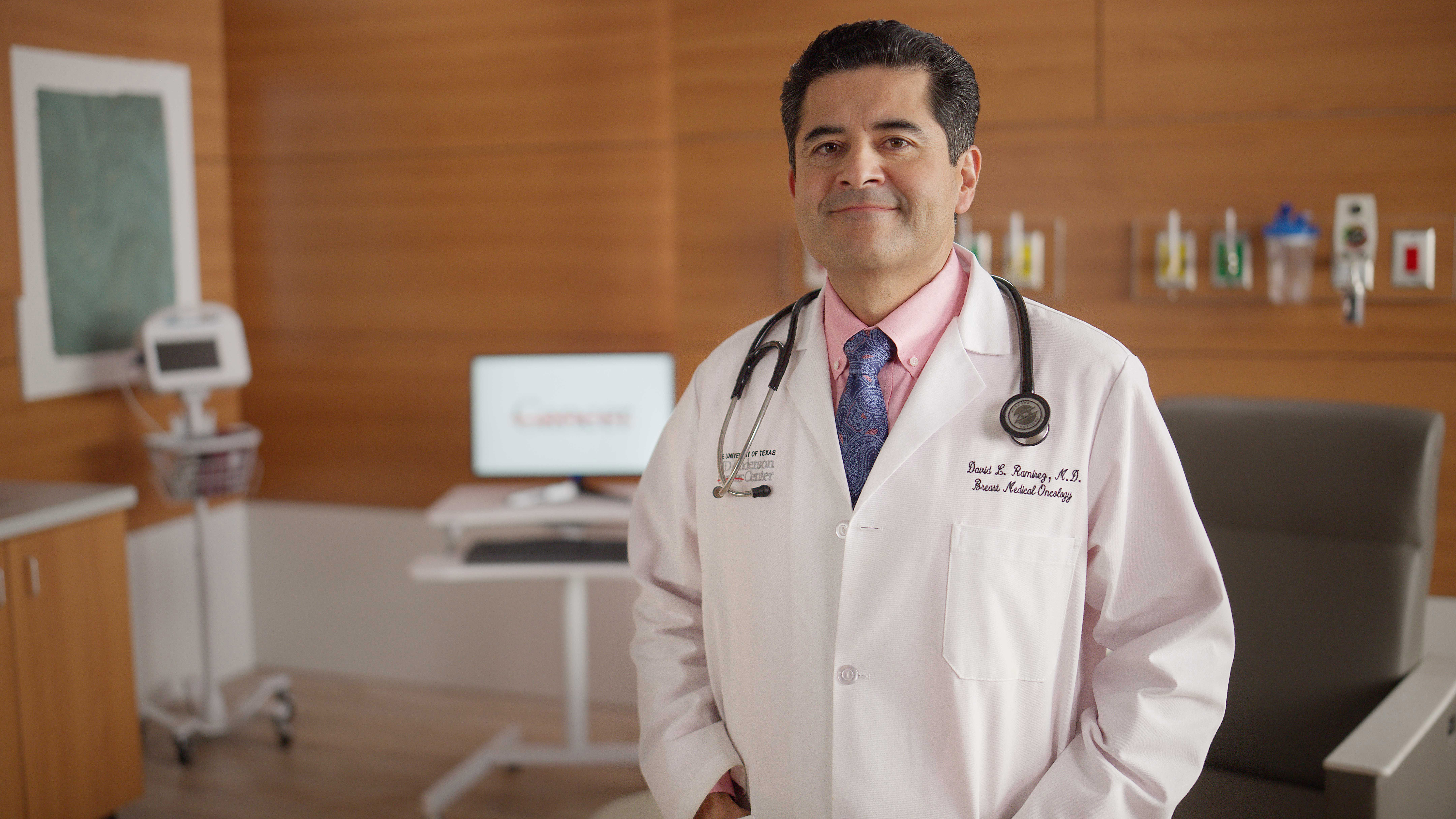- Diseases
- Acoustic Neuroma (16)
- Adrenal Gland Tumor (24)
- Anal Cancer (70)
- Anemia (2)
- Appendix Cancer (18)
- Bile Duct Cancer (26)
- Bladder Cancer (74)
- Brain Metastases (28)
- Brain Tumor (234)
- Breast Cancer (726)
- Breast Implant-Associated Anaplastic Large Cell Lymphoma (2)
- Cancer of Unknown Primary (4)
- Carcinoid Tumor (8)
- Cervical Cancer (164)
- Colon Cancer (168)
- Colorectal Cancer (118)
- Endocrine Tumor (4)
- Esophageal Cancer (44)
- Eye Cancer (36)
- Fallopian Tube Cancer (8)
- Germ Cell Tumor (4)
- Gestational Trophoblastic Disease (2)
- Head and Neck Cancer (14)
- Kidney Cancer (130)
- Leukemia (342)
- Liver Cancer (50)
- Lung Cancer (286)
- Lymphoma (278)
- Mesothelioma (14)
- Metastasis (30)
- Multiple Myeloma (100)
- Myelodysplastic Syndrome (60)
- Myeloproliferative Neoplasm (6)
- Neuroendocrine Tumors (16)
- Oral Cancer (102)
- Ovarian Cancer (178)
- Pancreatic Cancer (160)
- Parathyroid Disease (2)
- Penile Cancer (14)
- Pituitary Tumor (6)
- Prostate Cancer (150)
- Rectal Cancer (58)
- Renal Medullary Carcinoma (6)
- Salivary Gland Cancer (14)
- Sarcoma (238)
- Skin Cancer (300)
- Skull Base Tumors (56)
- Spinal Tumor (12)
- Stomach Cancer (66)
- Testicular Cancer (28)
- Throat Cancer (92)
- Thymoma (6)
- Thyroid Cancer (100)
- Tonsil Cancer (30)
- Uterine Cancer (86)
- Vaginal Cancer (18)
- Vulvar Cancer (22)
- Cancer Topic
- Adolescent and Young Adult Cancer Issues (22)
- Advance Care Planning (12)
- Biostatistics (2)
- Blood Donation (18)
- Bone Health (8)
- COVID-19 (360)
- Cancer Recurrence (120)
- Childhood Cancer Issues (120)
- Clinical Trials (628)
- Complementary Integrative Medicine (22)
- Cytogenetics (2)
- DNA Methylation (4)
- Diagnosis (238)
- Epigenetics (6)
- Fertility (62)
- Follow-up Guidelines (2)
- Health Disparities (14)
- Hereditary Cancer Syndromes (128)
- Immunology (18)
- Li-Fraumeni Syndrome (8)
- Mental Health (122)
- Molecular Diagnostics (8)
- Pain Management (62)
- Palliative Care (8)
- Pathology (10)
- Physical Therapy (18)
- Pregnancy (18)
- Prevention (936)
- Research (390)
- Second Opinion (78)
- Sexuality (16)
- Side Effects (616)
- Sleep Disorders (10)
- Stem Cell Transplantation Cellular Therapy (216)
- Support (408)
- Survivorship (328)
- Symptoms (182)
- Treatment (1788)
7 tips for maintaining weight loss
5 minute read | Published February 21, 2024
Medically Reviewed | Last reviewed by an MD Anderson Cancer Center medical professional on February 21, 2024
You’ve hit your weight loss goal! Now what?
While there is no shortage of information on how to lose weight, it can be trickier to determine how to keep weight off for good.
Fortunately, many of the healthy habits that can be used to lose weight are the same ones that will support you in maintaining weight loss.
Ahead, senior clinical dietitian Jessica Tilton shares tips for making your weight loss stick long term.
Re-evaluate your body’s needs
First, let’s talk about why it is common to regain weight after weight loss. Tilton says this is because when you have less body mass, your body needs less energy – that is, fewer calories.
“As weight loss progresses, energy needs decrease. When you reach your goal weight, you have to maintain that lower energy rate, and most people have difficulty doing that,” she says.
She recommends using a body weight planner to help determine how many calories to eat per day based on your weight, height, sex, age and activity level.
Monitor calories or portion sizes
Weight loss requires a caloric deficit, which means consuming fewer calories than your body uses. After losing weight, you no longer need to remain in a caloric deficit. However, going back to the same eating patterns you had before weight loss could result in weight gain.
“To continue maintaining your weight, you’re going to have to be sure that you hold to some caloric goal. The main thing is you have to do regular tracking of diet, physical activity and your weight,” Tilton says.
But if tracking calories isn’t the best approach for you, don’t sweat it! Keeping an eye on portion size, choosing healthy options and following the other tips on this list can also aid in maintaining weight loss.
Eat regularly
If you’ve ever been so hungry before a meal that you couldn't help but overindulge when you finally had the chance to eat, you’ll understand why Tilton suggests eating regularly to maintain weight loss.
“If you eat a lot at one time, you can have a glucose spike and then have a crash. But if you eat three meals, you tend to control the calories because you won’t be ravenously hungry. You can plan and control those meals and you'll tend to have more even glucose levels,” she says.
Choose healthy foods and drinks
Now that we’ve covered when to eat, let’s talk about what to eat.
MD Anderson dietitians recommend eating healthy foods. Come mealtime, this means filling two thirds of your plate with whole grains, vegetables, fruits, beans, nuts and seeds, and limiting lean animal protein or plant-based protein to the remaining one-third.
Tilton also recommends eating more non-starchy vegetables and plant-based proteins and choosing fewer calorically dense options, such as deep-fried foods, processed foods and fast food.
What you drink can also have an impact on weight. Remember to account for the calories in options like soda, sports drinks, energy drinks, sweetened coffees and teas, and alcoholic beverages.
For cancer prevention, it is best not to drink alcohol. For those that choose to drink, MD Anderson recommends men limit themselves to two drinks a day, while women limit themselves to one drink a day.
Prioritize physical activity
While Tilton says diet is the most important factor in weight loss, movement plays an important role in overall health.
Physical activity can benefit cardiovascular health, support digestion and strengthen muscles. It also supports a healthy body weight, which can lower the risk for some cancers.
The American Institute for Cancer Research recommends 150 minutes of exercise each week. This might look like dedicating 30 minutes each weekday to your favorite types of movement, whether that be lifting weights, swimming, practicing yoga, jogging, dancing, strength training, walking, group fitness classes, or playing sports. Find what works for you!
If you don’t already exercise, start gradually.
This might look like increasing your physical activity over several weeks. For example, the first week, add 15 minutes of physical activity, like walking or biking, into your routine 3 times. The next week, do 20 minutes of physical activity 3 times. The third week, aim for 25 minutes of exercise 4 times, and by the fourth week, 30 minutes of exercise 5 times.
Another way to add more movement to your day is to set a goal to stand up and move for a minute or two each hour you are awake.
Learn more about creating a workout plan.
Get enough sleep
While diet and exercise might get more attention for their roles in weight loss, sleep also contributes.
Tilton says studies have shown a link between getting enough sleep and maintaining weight loss. Additionally, she says sleep supports the brain-gut connection, and that too little sleep can increase inflammation.
“There's a very strong brain-gut connection, so you need to give the body and the brain rest, which is why it’s important to get sleep,” she says.
Adults should aim to sleep between seven and eight hours per night.
Monitor your progress
Tilton’s most important piece of advice for anyone looking to maintain weight loss is to monitor progress.
This might look like scheduling daily or weekly weigh-ins, measuring yourself, taking progress photos, or noting how your favorite pair of pants fit.
However this looks for you, Tilton says self-monitoring can provide insight into the lifestyle factors that may be influencing your weight. This could be as simple as noting that you indulged more than expected over the weekend or haven’t been finding time to exercise.
Tilton also acknowledges that losing weight is a process, and a difficult one, at that.
"Weight loss is hard to maintain. It’s never linear. But I always remind people that even 5 to 10% weight loss has been shown to have positive effect,” she says.
If you are struggling to maintain weight loss, Tilton suggests checking in with a registered dietitian or weight loss specialist. This can be especially helpful if the initial changes you made to lose weight weren’t ones you can see yourself sticking to long-term.
"The changes to lose weight take time,” Tilton says. “They’re the ones that clients can live with for a lifetime. It’s something that's not, ‘I can do this for six months, and then I won't have to.’”
Request an appointment at MD Anderson online or call 1-877-632-6789.
Related Cancerwise Stories

You have to do regular tracking of diet, physical activity and your weight.
Jessica Tilton
Senior clinical dietitian





